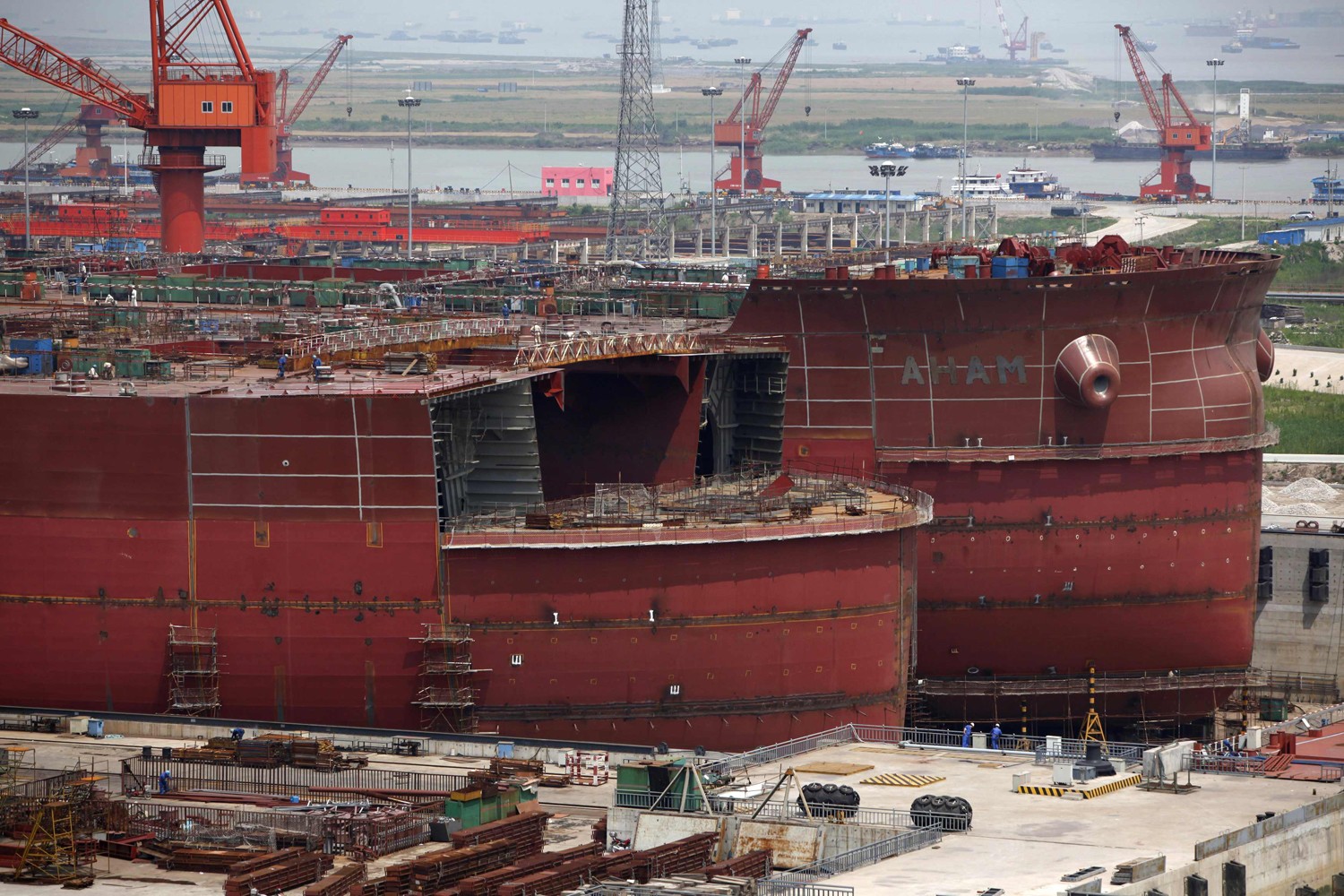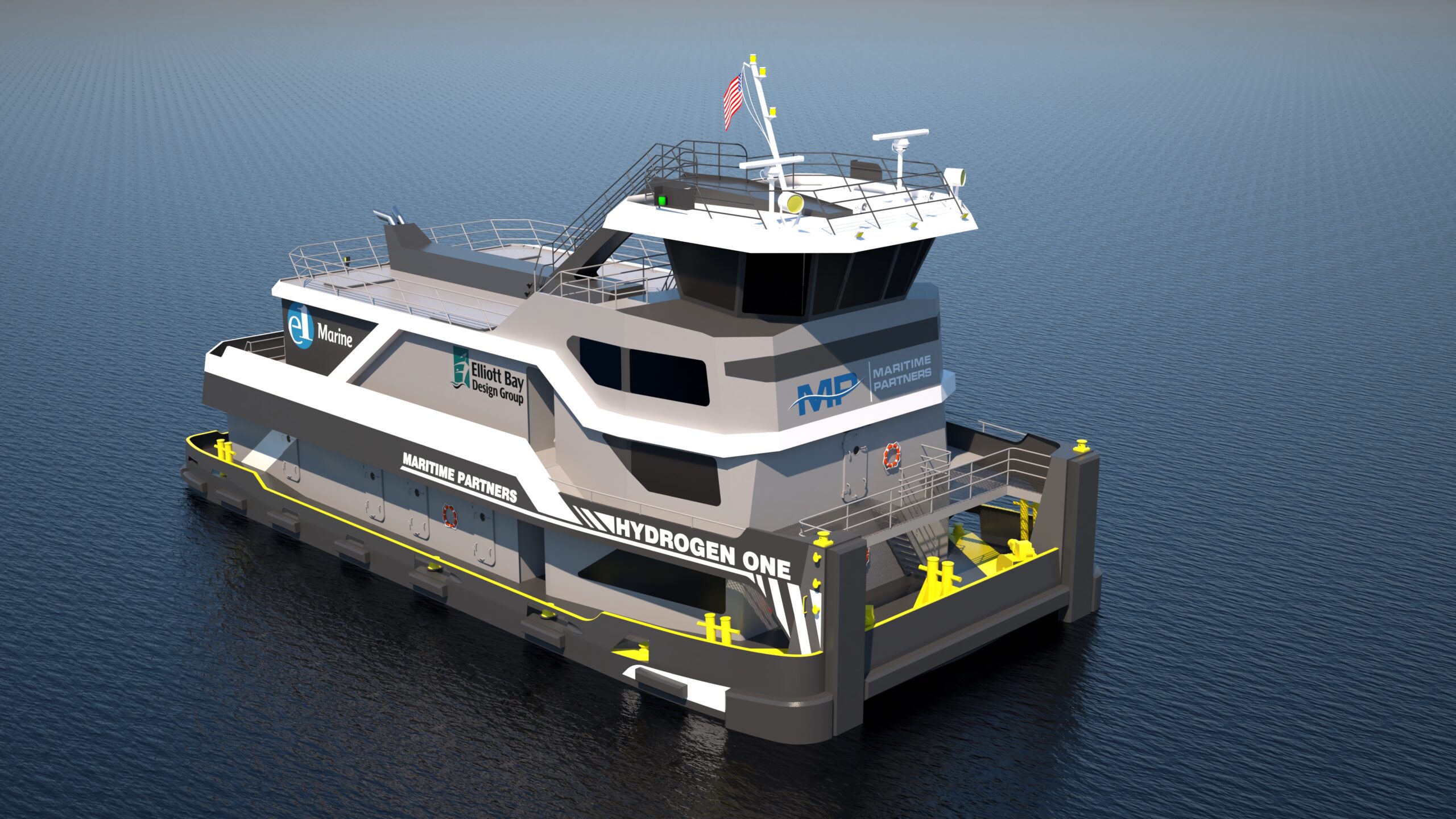Labourers work at a Rongsheng Heavy Industries shipyard in Nantong, Jiangsu province in this May 21, 2012 file photo. (c) REUTERS/Aly Song/Files
 By Koh Gui Qing and Yimou Lee
By Koh Gui Qing and Yimou Lee
HONG KONG/BEIJING, July 8 (Reuters) – An appeal for government financial support from China’s biggest private shipbuilder presents authorities with some stark choices between protecting a big employer and its jobs or letting the firm go under to ease pressure on a sector suffering from overcapacity and sharply falling new orders.
Since Beijing appears intent on telling investors it is serious about changing the investment-led growth model of the world’s second-biggest economy and controlling a credit splurge, it may seem like the writing is on the wall for China Rongsheng Heavy Industries Group.
Yet analysts say the government is more likely than not to judge that Rongsheng, which employs around 20,000 workers and has received state patronage, is too big and well connected to fail.
Supporting Rongsheng will not mean China’s economic reform plans are derailed, they say. Instead, it will mean reforms will be gradual and the government will cherry-pick firms it wants to support, which will exclude the small, private shipbuilders that have been folding in waves.
“Rongsheng is a flagship in the industry,” said Lawrence Li, an analyst with UOB Kay Hian in Shanghai. “The government will definitely provide assistance if companies like this are in trouble.”
Analysts say Rongsheng is possibly the largest casualty of a sector that has grown over the past decade into the world’s biggest shipbuilding industry by construction capacity. Amid a global shipping downturn, new orders for Chinese builders fell by half last year. In Rongsheng’s case, it won orders worth $55.6 million last year, compared with a target of $1.8 billion.
Rongsheng appealed for government aid on Friday, saying it was cutting its workforce and delaying payments to suppliers to deal with tightened cash flow.
It also called on its shareholders for financial help and said it was in talks with banks and other financial institutions to renew existing credit lines. Its 2012 annual report shows its short-term borrowings were about eight times bigger than its cash and cash equivalents.
It flagged losses for the first half of 2013, having posted an annual net loss in 2012 of 572.6 million yuan ($93.47 million), its worst on record.
Annual reports show that Rongsheng has received state subsidies since 2010, when it listed in Hong Kong.
In the prospectus for its initial public offer, Rongsheng said it received 520 million yuan of subsidies from the Rugao city government in the southern province of Jiangsu, where the company is based.
The state funds paid for research and development of new types of vessels, and were based in part on the “essential role we play in the local economy”, Rongsheng said.
“We cannot assure you that we will be able to receive similar government subsidies in the future,” it said. “If we do not receive such subsidies, our profit and profit margin may be substantially less than if we were to receive such subsidies.”
The company said it got state funds of 830 million yuan in 2010, 1.25 billion yuan in 2011, and 1.3 billion yuan in 2012.
As China’s economy grinds towards its slackest growth in at least 14 years, more firms like Rongsheng are foundering.
Suntech Power Holdings, a solar panel maker also based in Jiangsu, is waiting to be bailed out by the government after it was crushed by falling demand and a supply glut, a source with knowledge of the matter said in March. The government wants to find a way to rescue Suntech to avoid an embarrassing collapse that damages its reputation, the source said.
SHIPBUILDING DREAMS
China’s shipbuilding woes are partly of its own making. A global downturn in demand has hammered the sector since 2008, but a national obsession for global dominance in some industries led China to declare in the early 2000s that it wanted to be the world’s top shipbuilding nation by 2015.
A state-induced spike in the number of Chinese shipbuilders followed as the country led a three-fold rise in new global shipbuilding capacity in the past decade.
As the world’s largest shipbuilder, it had 1,647 shipyards in 2012, data from China Association of the National Shipbuilding Industry showed. Over 60 percent of its shipbuilders are based in Rongsheng’s province of Jiangsu.
In contrast, China’s main rivals South Korea and Japan have only 10 and 15 active shipyards, respectively, French shipping broker BRS says.
The rapid increase in capacity combined with a global shipping downturn is now taking its toll. A fifth of China’s shipbuilders lost money in 2012, data from the association of shipbuilders showed, nearly doubling from 2011.
In the Jiangshu city of Yangzhou, up to 80 percent of small, private shipbuilders have gone bankrupt in recent years, an industry official said. He declined to be named as he is not authorised to speak to the media.
There is no official data on job losses resulting from the collapse of small- and medium-sized shipbuilders.
Despite this, the government is providing support for the industry, a sign it will also support Rongsheng given its prominence in the sector, analysts said.
Export-Import Bank of China, which lends in support of government policy goals, said in January it will increase lending for the buying or leasing of ships by around $3 billion this year to support Chinese shipbuilders.
Beijing also devised a plan last year to subsidise early disposal of ships in use for over 15 years, with the state paying for 20 percent of the cost incurred, the Economics Information Daily, a newspaper run by state news agency Xinhua, said this month. The paper said the plan had not been announced due to conflicting views. It was not clear if China’s new government had vetoed the plan designed by their predecessors.
CONNECTIONS
The new central government, installed in March, has been signalling that it will push forward with reforms that broadly are aimed at reducing the economy’s reliance on investment-led growth and exports and gearing it more towards a consumer-led expansion.
Just last week Premier Li Keqiang said the government wanted to bring about orderly closures of some factories plagued by overcapacity. A statement from the State Council, or cabinet, did not specify any particular industries or companies.
Analysts say what separates Rongsheng from many other companies are its connections with the government and state banks. Rongsheng’s Chief Executive Chen Qiang, for example, enjoys “special government allowances” granted by China’s cabinet, the firm’s annual reports say.
Rongsheng also said in its IPO prospectus that it has two five-year financing deals with Export-Import Bank of China that end in 2014 and in 2015, and a 10-year agreement with Bank of China starting from 2009.
Experts say Rongsheng’s strong networks suggest the local governments will not let it fail, even if Beijing does not approve of a bailout.
After all, local government coffers will suffer the biggest blow if Rongsheng goes bust. The firm had 168 million yuan of deferred income taxes in 2012.
“Do people expect one of the largest shipyards in the world is going to stop building ships completely with state-of-the-art, brand new facilities?” said Martin Rowe, managing director of global shipping services provider Clarkson Asia Ltd. “I think it’s highly unlikely.” (Reporting by Yimou Lee in HONG KONG and Koh Gui Qing in BEIJING; Editing by Neil Fullick)
(c) 2013 Thomson Reuters, Click For Restrictions

 Join The Club
Join The Club











